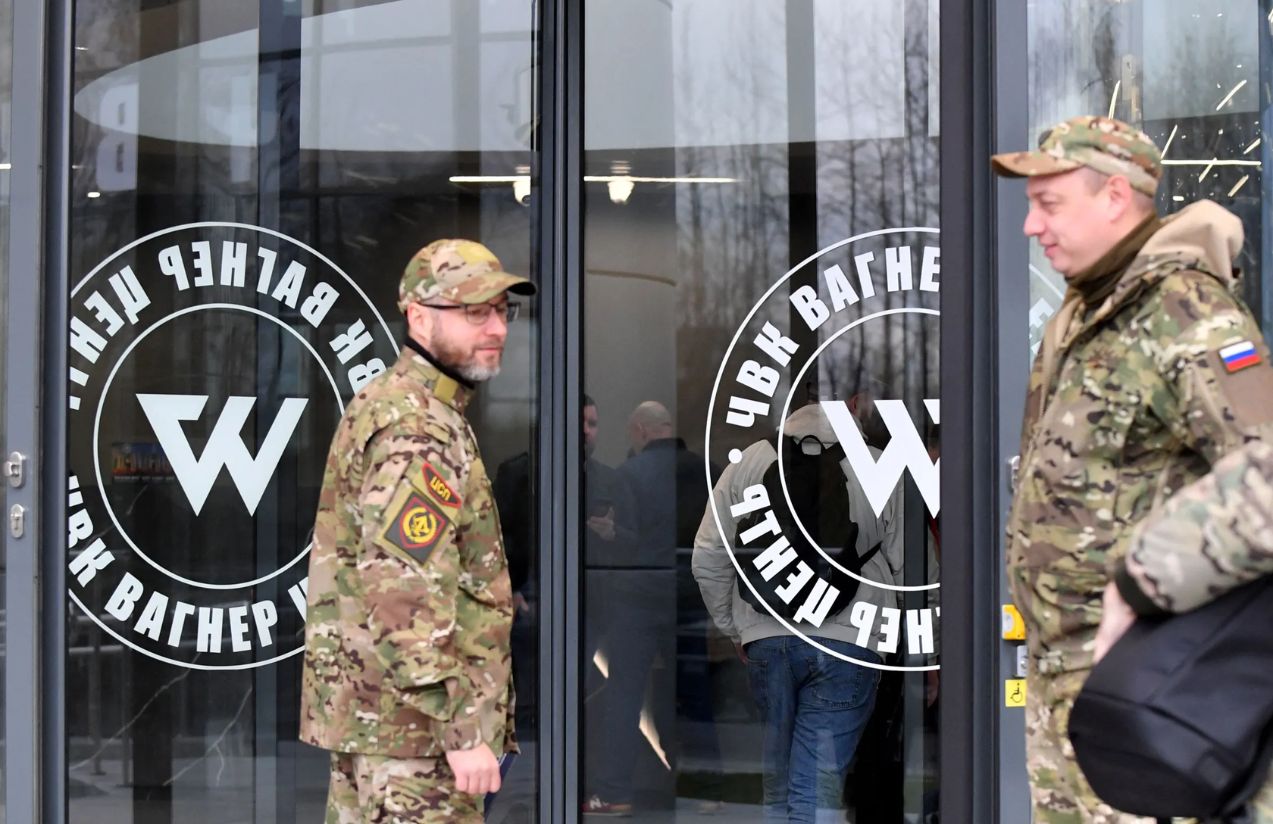Former fighter with the Wagner mercenary group and current Russian soldier has crossed the border into Finland to request asylum, according to Finnish media outlet Yle. The man, identified as Yevgeny, was detained by Finnish border guards on June 17 after entering the country through a forested area in Välivaara, eastern Kitee — a section of the border without fencing.
Yevgeny previously fought in eastern Ukraine as part of Wagner, including during the siege of Bakhmut. More recently, he is believed to have served as a company commander in Russia’s 443rd Motorized Infantry Regiment, which took part in the capture of Selidove in the Donetsk region during the fall of 2024.
On social media, the ex-combatant describes himself as a Wagner mercenary and has posted several videos harshly criticizing Russia’s military leadership. In one, he accuses commanders of abandoning their troops on the battlefield. In another, dated June 30 and verified by Yle, he calls Russian officers “traitors” — a post made while he was already in Finland.
So far, Finnish authorities have not launched a war crimes investigation against him. However, Ukraine’s ambassador to Finland, Mykhailo Vidoinik, confirmed that Ukrainian authorities are reviewing Yevgeny’s online content to determine whether he may have been involved in war crimes.
Videos obtained by Yle place him in eastern Ukraine during the fall of 2024, wearing a Wagner insignia. In one clip, recorded in Selidove, he recounts how his unit destroyed a vehicle carrying Ukrainian soldiers. In earlier interviews with pro-Russian media, he claimed to have fought in several regions and said he voluntarily joined the Russian military in 2022 after receiving training from Wagner.
Wagner played a key role in the battle for Bakhmut and has been accused of numerous war crimes in the region, including the execution of Ukrainian prisoners — a case that drew international condemnation. Although the group’s influence has waned since its failed mutiny against the Kremlin in 2023, experts cited by Yle say the Russian army has adopted many of its tactics.
Yevgeny had previously been portrayed in Russian propaganda channels as a “model soldier.” However, he vanished from the front lines following the battle of Selidove. In February 2025, he reappeared in a video accusing top military leaders of mistreating troops and vowing to hold them accountable.
His record also includes a criminal offense: according to pro-Russian outlet Bloknot Donetsk, Yevgeny was convicted of robbing a jewelry store in Omsk, southwestern Siberia, in the fall of 2023 and sentenced to six years in prison. Shortly afterward, he returned to the battlefield — a common practice in Russia, where convicted criminals are recruited for military service.
Finnish authorities have confirmed that the man has requested international protection and remains in a detention facility.
Ukrainian officials are closely monitoring the case. Ambassador Vidoinik emphasized the effective cooperation between Ukraine and Finland, recalling the life sentence handed down in March to Russian national Voislav Torden, deputy commander of the Rusich militia — another group linked to Wagner.
Torden, formerly known as Yan Petrovski, was convicted by the Helsinki District Court of four war crimes committed in 2014 and 2015 in eastern Ukraine. According to the court, he was the second-in-command of the militia that carried out an ambush in Luhansk, killing 22 Ukrainian soldiers and wounding four others.
Criminal law professor Dan Helenius noted similarities between Yevgeny’s case and that of Torden. He explained that for Finland to open a formal investigation, it would need evidence from Ukraine, which could also request his extradition. Helenius added that in war crimes cases, commanders bear greater responsibility: “If someone is found to have influenced the commission of such crimes, even without direct participation, they can still be held accountable for the actions of their subordinates.”




















